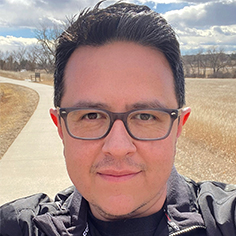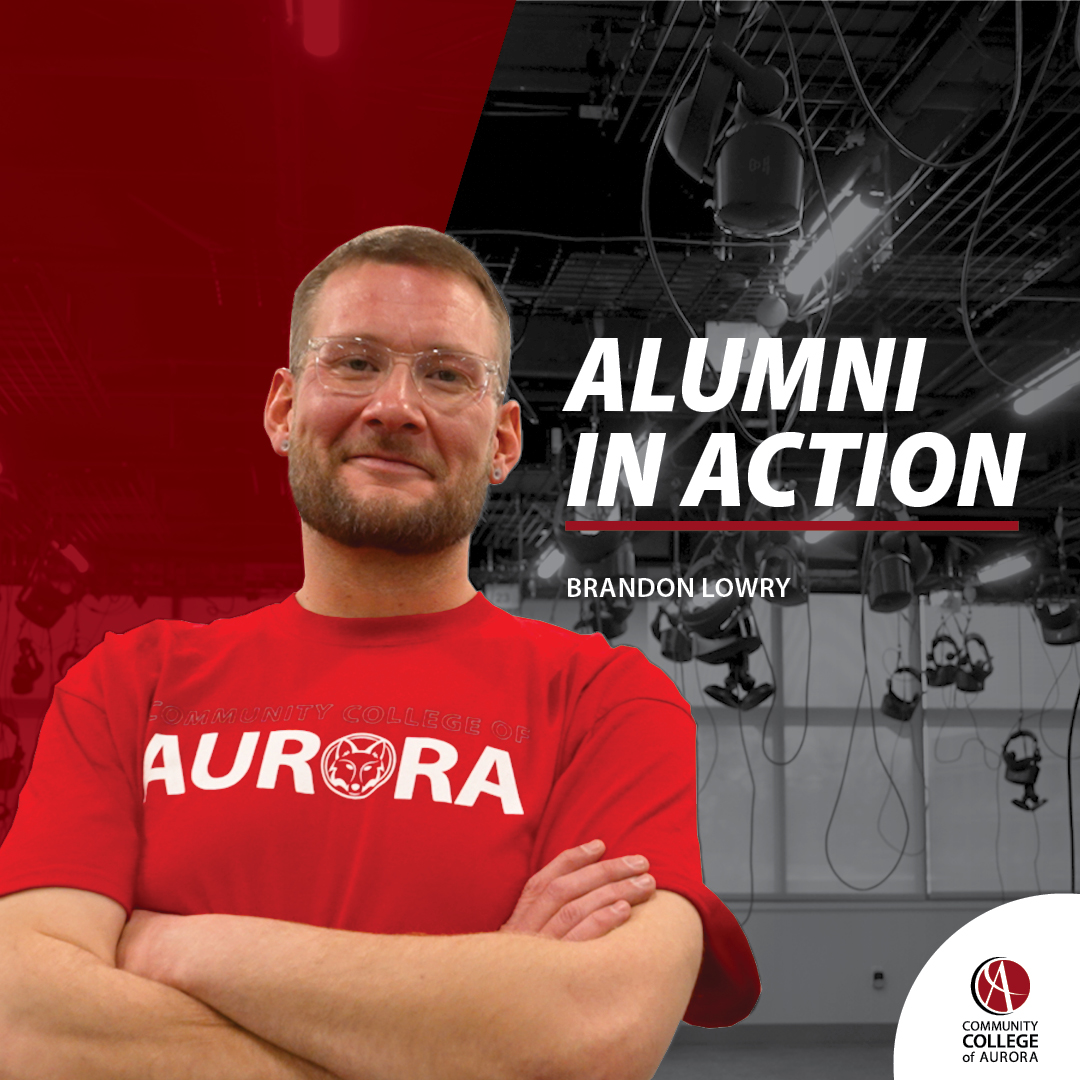Alumni in Action: Brandon Lowry
Brandon Lowry envisions a world where virtual reality breaks down barriers to education. CCA helped him carve his path to giving people from marginalized communities a chance at academic success.
Video by: CCA Dept. of Strategic Communications
After his partner enrolled in CCA, he followed suit. He says his eyes were opened to the types of barriers others faced, and he switched tracks from pursuing biomedical sciences, to STEM education. Brandon Lowry imagines a landscape where there are no obstacles to a good education for those who want it. It’s his life’s work. Through the advancement of virtual reality (VR), he is working toward the goal of making higher education available to the masses, regardless of their geographic location, or any other obstacle they may face.
Lowry found his passion for ethical and equitable education while studying psychology at the Community College of Aurora (CCA). It was there he understood the importance identity plays in one’s academic journey.
Too often, he says, he heard friends from marginalized backgrounds say they could never envision futures as doctors or scientists. That’s when his life’s mission clicked for him.
“CCA contributed to my path by showing me the importance of identity, the value in social justice, and making sure that students feel they belong. As I had opportunities here at CSU, it kept reminding me that’s the direction I should go.”
Now, he’s pursuing his master’s degree, as well as his PhD at Colorado State University, and he hopes his research in VR-based instructional design impacts the way students learn in the future. For example, he believes VR could drastically impact the way students in rural areas learn, by giving them access to tools they might not have in their geographical area.
“This research could have a broad impact in all sorts of domains. Bringing people into STEM and experiences they might not get being on the outskirts,” he said.
Lowry’s spark for his passion for education came from his own experiences growing up in rural Louisiana. As a queer individual growing up in that area, he felt his own sense of marginalization.
Prior to CCA, Lowry was teaching, and it was a decade before he decided to enroll back in school. It didn’t take long for the campus to feel like his home.
“When I finally got there, and I started doing well, and I started enjoying myself, and started believing that I was in the right space, it just felt like when my mom says ‘when you do right, it will feel right,’ it felt right.”
Aside from his academic studies, CCA offered him the college experience he missed in his 20s. He experienced student clubs, and the support that is offered on college campuses.
“At CCA, I felt the green light to be my authentic self. Living in Louisiana I didn’t feel that I could ever be who I truly was, that I could be out, that I could tell folks who I thought was attractive. When I got to CCA, I immediately felt like I could be myself.”
He says this power in representation was especially present at the administration and leadership level, where he says college leaders made a point to show representation of marginalized groups. He says the effort made for an enriched experience.
Now, as he continues his research, and zeros in on ways to enrich other students’ lives and experiences, he says CCA was pivotal to his own success. And even though he is now a CSU Ram, he calls himself a “Foxy-Ram,” paying homage to where it all started for him.
“I view it as a charge to take the lessons that I’ve learned, and bring them into the other spaces that I’m in now. It’s a badge of honor. For me it’s a charge of action to continue doing the tough work. It’s also my foundation. I’m a fox.”


